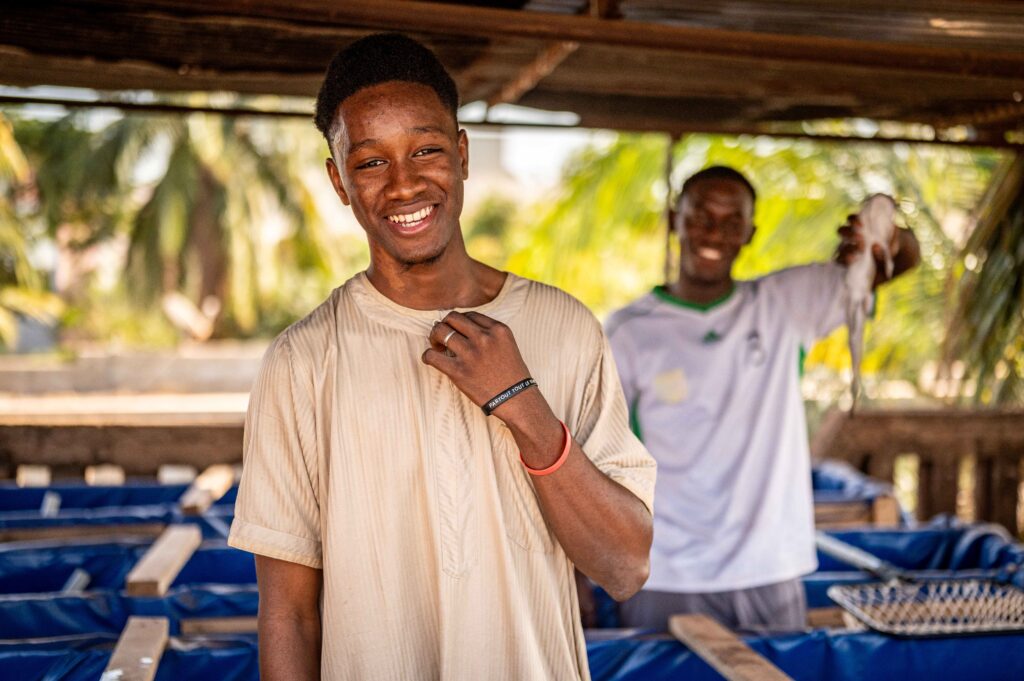What does it mean to “be a man”? Across cultures worldwide, ideas about masculinity shape how men see themselves and relate to others. Too often, these expectations limit personal freedom and reinforce inequality. But what if we could rewrite the script?

These questions are tackled in our new position paper, which examines how harmful forms of masculinity affect peacebuilding, health, and gender equality, and explores the transformative potential of more positive alternatives. In it, we lay out our understanding of different forms of masculinity, their interaction with our thematic areas of work, and our approach to overcoming the harmful gender norms that negatively affect not only women and girls, but equally boys and men.
The consequences affect everyone: higher rates of gender-based violence, barriers to healthcare access, and obstacles to sustainable peace.
Masculinities and Conflict
In conflict-affected settings, masculinity takes on heightened significance. Armed groups and militaries often pressure men and boys into violent roles, rewarding aggression whilst mocking those who refuse as “cowards” or not “real men.”
Cordaid’s work in the Democratic Republic of Congo through the S3G project demonstrates an alternative. By engaging young men in micro income-generating activities, such as construction, chicken farming, and water purification, the programme offers nonviolent pathways to self-worth and status.
Health and Reproductive Rights
Harmful masculine norms also shape sexual and reproductive health outcomes. Men who adhere to rigid gender expectations are less likely to use condoms, seek healthcare, or take HIV tests. They often hold decision-making power over contraception whilst excluding themselves from family planning discussions or prenatal care.
Engaging men and boys is vital for improving health outcomes for everyone. In Mali, Cordaid’s Jigiya programme works with religious leaders, elders, and families to foster respectful, empathetic forms of masculinity. By using faith frameworks to demonstrate how gender equality aligns with religious values, the programme builds trust. It encourages men to accompany their wives to health centres and share household responsibilities.
Starting Early
Transformation begins with boys and adolescents, before harmful norms become fully internalised. Cordaid’s Like Joe educational resource, developed with input from young people in the DRC, CAR, and Burundi, helps boys aged 12-16 navigate puberty, sexuality, and identity through storytelling and participatory activities.
A Call to Action
The paper concludes with clear recommendations for policymakers, practitioners, and partners:
- Adopt gender-transformative approaches that challenge harmful norms and redistribute power
- Start early with school-based interventions and continue engagement throughout men’s lives
- Provide trauma-informed support in conflict-affected areas and offer alternative livelihoods
- Promote men’s involvement in sexual and reproductive health through shared decision-making
- Use intersectional approaches that recognise how class, race, age, ability, and sexuality shape masculine experiences
- Measure change across attitudes, behaviours, relationships, and structures
Positive masculinities aren’t about rejecting masculinity altogether, but about reshaping it to promote healthier relationships, more resilient communities, and more equitable societies. By redefining strength as cooperation, respect, and responsibility rather than dominance or control, we can build a future where everyone has the freedom to thrive.